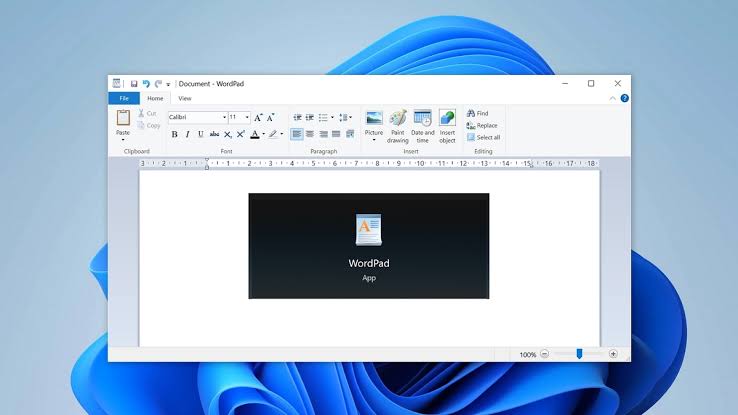Microsoft has discontinued WordPad, a simple text-editing tool that has always come with Windows. This drastically alters the company’s software. After Microsoft redesigned Notepad, WordPad will be eliminated from future Windows versions. This will likely begin with Windows 12, released in 2024.
According to a study, the software has always come pre-installed on Windows computers, but starting in 2020, users can decide whether or not to use it. This shift indicated Microsoft’s plan to revamp its software.
Look at Microsoft’s comprehensive word processing software plan to determine why they did what they did. WordPad has always lagged behind Microsoft Word and Notepad in features and functions, but it’s acceptable for simple text writing.
The WordPad shutdown
Moving to phase out WordPad is part of the aim to make Microsoft Word the top word processor for consumers. Word costs money but offers document collaboration, powerful formatting, and large template libraries. Microsoft Word now empowers professionals, students, and creatives.
Users are encouraged to try Microsoft Notepad, the default text editor in all Windows versions that lets you create, open, and read.txt files.
Microsoft stated in support notes that in a future Windows release, WordPad will be removed from updates. For rich text documents like.doc and.rtf, use Microsoft Word, and for plain text, use Windows Notepad.
Microsoft Windows 12 will have AI-powered features
It’s too early to tell what Windows 12, the successor to Windows 11, will be like in 2024, even if everyone is excited. Glances and leaks have revealed intriguing details regarding the company’s significant update.
Stories have suggested Windows 12 will be the next release, but Microsoft hasn’t confirmed anything. Adding a floating taskbar and moving system items like the Wi-Fi and power bars to the top were vital.
A macOS and Linux-like weather widget. The more straightforward and modern user experience is in keeping with current design trends.
Another great Windows 11 addition was Windows Copilot. It’ll likely become more essential in Windows 12—AI-powered functionality claims to improve OS interaction by providing help and support before users ask. Users may engage differently with their OS.
Also, stories from the past few months have shed light on several AI-powered features in Windows apps. A second investigation revealed many AI features in Windows apps. For instance, Paint can create images, and Camera supports OCR.
These changes may be for Windows 12, but they show that Microsoft is committed to leveraging AI to give people more control and make computing more accessible.




